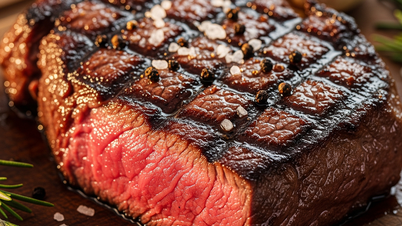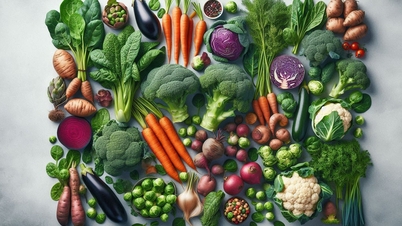Besides the amount of food, the time of eating is also an important factor affecting your health and weight.
In the United States, dinner is often the largest meal of the day. In Spain and some other European countries, lunch is the largest meal. That difference is still inspiring scientists to study how meals and meal times can affect health, according to The New York Times.
Avoid making dinner your biggest meal
Dr. Nour Makarem, Mailman School of Public Health at Columbia University (USA), said that many studies have shown that people who consume more calories in the evening tend to have an increased risk of obesity, type 2 diabetes, high blood pressure and inflammation levels.

Eating a lot at dinner increases the risk of obesity.
In the morning, your body is ready to process a large meal, absorb nutrients, distribute them, and convert them into energy for the day, explains Frank A.J.L. Scheer, director of the circadian rhythm medicine program at Brigham and Women's Hospital in Boston. But as the day progresses, metabolic organs, like the liver and pancreas, become less responsive.
If you eat two identical meals, one in the morning and one in the evening, your blood sugar will spike and stay high for a longer period after dinner, says Dr. Scheer.
Marta Garaulet, professor of physiology at the University of Murcia (Spain), also confirmed that melatonin - a hormone that signals bedtime, will increase 1 to 2 hours before sleep comes, inhibiting the secretion of insulin from the pancreas, making blood sugar difficult to control.
Experts also point out that eating large meals at night increases fat storage while sleeping; increases the risk of high blood pressure, chronic inflammation, obesity and type 2 diabetes due to frequent high blood sugar levels.
On the other hand, people who consumed the most calories at breakfast or lunch lost slightly more weight than those who consumed the most calories at dinner. People were also less hungry during the day when their largest meal was breakfast than when it was dinner.
Prioritize a nutritious breakfast, choose healthy foods
Alexandra Johnstone, professor of nutrition at the University of Aberdeen in Scotland, recommends prioritizing a nutritious breakfast, including protein-rich foods such as Greek yogurt, eggs or beans.
Dr. Nour Makarem suggests trying to consume more calories earlier in the day and avoiding late-night eating. If you do have to eat late at night, stay away from processed foods and foods high in sugar and sodium.
Instead, prioritize lower-calorie foods that fill you up without spiking your blood sugar, such as beans, grilled fish, chicken breast, vegetables, fruits, and whole grains.
One expert tip is to eat a hearty lunch, so you'll be less hungry by evening and even less tempted to snack late at night.
Source: https://thanhnien.vn/co-nen-an-it-hon-vao-buoi-toi-185250216195424407.htm


![[Photo] The 1st Congress of Phu Tho Provincial Party Committee, term 2025-2030](https://vphoto.vietnam.vn/thumb/1200x675/vietnam/resource/IMAGE/2025/9/30/1507da06216649bba8a1ce6251816820)

![[Photo] Panorama of the cable-stayed bridge, the final bottleneck of the Ben Luc-Long Thanh expressway](https://vphoto.vietnam.vn/thumb/1200x675/vietnam/resource/IMAGE/2025/9/30/391fdf21025541d6b2f092e49a17243f)
![[Photo] General Secretary To Lam, Secretary of the Central Military Commission attends the 12th Party Congress of the Army](https://vphoto.vietnam.vn/thumb/1200x675/vietnam/resource/IMAGE/2025/9/30/9b63aaa37ddb472ead84e3870a8ae825)
![[Photo] Solemn opening of the 12th Military Party Congress for the 2025-2030 term](https://vphoto.vietnam.vn/thumb/1200x675/vietnam/resource/IMAGE/2025/9/30/2cd383b3130d41a1a4b5ace0d5eb989d)
![[Photo] President Luong Cuong receives President of the Cuban National Assembly Esteban Lazo Hernandez](https://vphoto.vietnam.vn/thumb/1200x675/vietnam/resource/IMAGE/2025/9/30/4d38932911c24f6ea1936252bd5427fa)




























































































Comment (0)